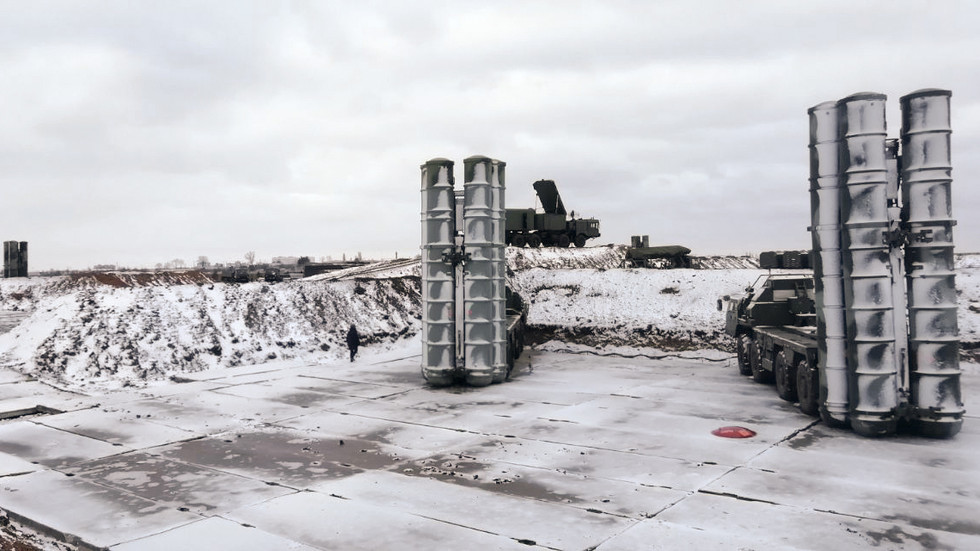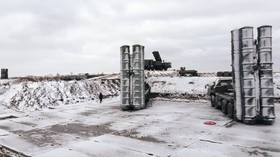
A wave of UAVs has followed a failed ‘Storm Shadow’ strike

FILE PHOTO: Russian S-400 Triumph medium-range and long-range surface-to-air missile system © Sputnik / Viktor Lyashсhenko
Three dozen Ukrainian drones were shot down while attempting to strike Crimea in the early hours of Friday, according to the Russian Defense Ministry.
“An attempt by the Kiev regime to carry out a terrorist attack with unmanned aerial vehicles was stopped on January 5,” the ministry said in a bulletin.
“Air defense systems on duty destroyed and intercepted 36 Ukrainian UAVs over the territory of the Republic of Crimea and one UAV over the territory of Krasnodar Region,” the military added.
The drone attack came just hours after an attempted missile strike on Sevastopol, in which Kiev’s forces used ten missiles, including the Western-supplied “Storm Shadows.”

According to local media, none of the missiles reached their intended targets. Debris from the destroyed projectiles caused some property damage, however, and injured one civilian.
One downed missile fell in the residential area near the Sevastopol State University (SevGU) and did not explode. The area has been cordoned off to allow explosive ordnance disposal teams to handle the situation.
Around the same time as the drone attack, Ukrainian artillery also targeted the city of Belgorod across the northern border. A total of ten rockets were intercepted, but at least one struck a parking lot in a residential area, shattering windows and damaging a number of cars. Two civilians were reported injured by local authorities.

Belgorod has been subjected to Ukrainian shelling for seven days in a row now. On Saturday, rockets with cluster warheads struck the town square, killing 25 civilians – including children – and wounding 100 more. Moscow has accused the US and the UK of helping plan the strike.
Five NATO reconnaissance planes and a drone had surveyed Crimea on Wednesday, while an American RC-135W spy plane was patrolling the Black Sea during the missile strike on Thursday, noted the Russian think-tank Rybar.




